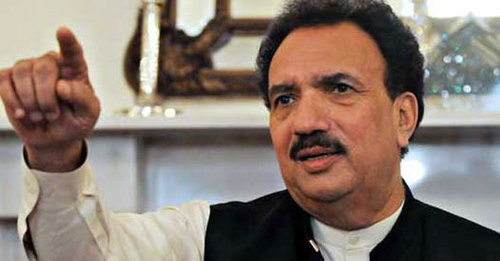A three-member bench of the Supreme Court on Wednesday reserved its decision regarding a petition filed by Prime Minister Nawaz Sharif's son, Hussain Nawaz, seeking the formation of a commission to investigate a photo 'leak' from his appearance before the joint investigation team (JIT) probing allegations of money laundering against the Sharif family.
Hussain Nawaz's lawyer Khawaja Haris while presenting his arguments against the use of video cameras during JIT proceedings said that the law did not allow for video recording which, he maintained, was of no legal value.
Haris warned the court of the possibility of video being leaked in the future which, he said, would have much greater consequences. "Who will be responsible if the prime minister’s video is released on social media tomorrow?" Haris asked.
Hussain's counsel claimed that the video recording was being used to add undue pressure on witnesses. "What is the need for it when it cannot be used as evidence?" he asked.
"I am discussing the psychological aspects of video recording," Haris said, adding that the witness is engulfed in fear during video recordings.
He claimed that witnesses were being pressured to change their statements.
Justice Ejaz Afzal said that the video recording does not change the legal value of the statement. "It is only used to determine the correct context of the statement," he asserted, maintaining that the rights of witnesses remain unaffected.
To this, Haris said that correct statements had been recorded even before the introduction of video technology.
"We are not living in 1889," Justice Afzal responded, adding that the use of technology was 'no big deal'.
Haris argued that the Code of Criminal Procedure (CrPC) Article 161 allows for verbal investigation which can be written whenever required. A record of the written statement can be kept separately, he added.
Rejecting these arguments, Justice Ejaz Afzal said that a statement recorded under Article 161 is not admissible as evidence and is only used when there are two contradicting statements.
Article 161 of the CrpC, pertaining to the examination of witnesses by police, states that the officer may write any statements made to him during the course of a probe and in doing so, will make a separate record of the statements of each person whose statements are recorded.
Hussain's counsel argued that a video recording is tantamount to making a witness sign a statement.
"Since a witness cannot be made to forcibly sign a statement, a video recording would be against the law," he said, adding that the court could not issue an order that was against the law.
Haris pointed out that the JIT had conceded that a team member had 'leaked' the photo which meant, he claimed, that they had no control over the CCTV cameras.
During an earlier hearing, the JIT had rejected all allegations against the photo 'leak', but also told the SC that punitive action has been taken against one individual suspected of involvement in the incident.
"How can the JIT be the judge of its own actions?" Haris questioned, referring to the JIT's action against its team member.
Attorney General Ashtar Ausaf Ali seconded Haris’s point of view, saying that the court could not create space for new rules in existing laws on its own.
Continuing his arguments, Haris stated that the JIT is bound by a criminal code, the National Accountability Bureau (NAB) Ordinance 1999 and the Federal Investigation Agency (FIA) Act 1975 under the court's authority.
It could, therefore, not proceed according to its own rules and would have to follow the procedures already laid out, Haris argued.
Video recording does not affect the rights of the witness and should continue, Justice Afzal maintained.
The judge asked the attorney general to look into the JIT's allegations in detail, adding that the court would not tolerate hurdles in the JIT's proceedings. He warned that obstruction of the probe amounted to going against court orders.
Justice Azmat Saeed Sheikh added that the JIT's allegations were serious andforcibly sign the statement, a video recording would be against the law, could not be ignored.
The court, however, reserved its judgement on the case until tomorrow.













































